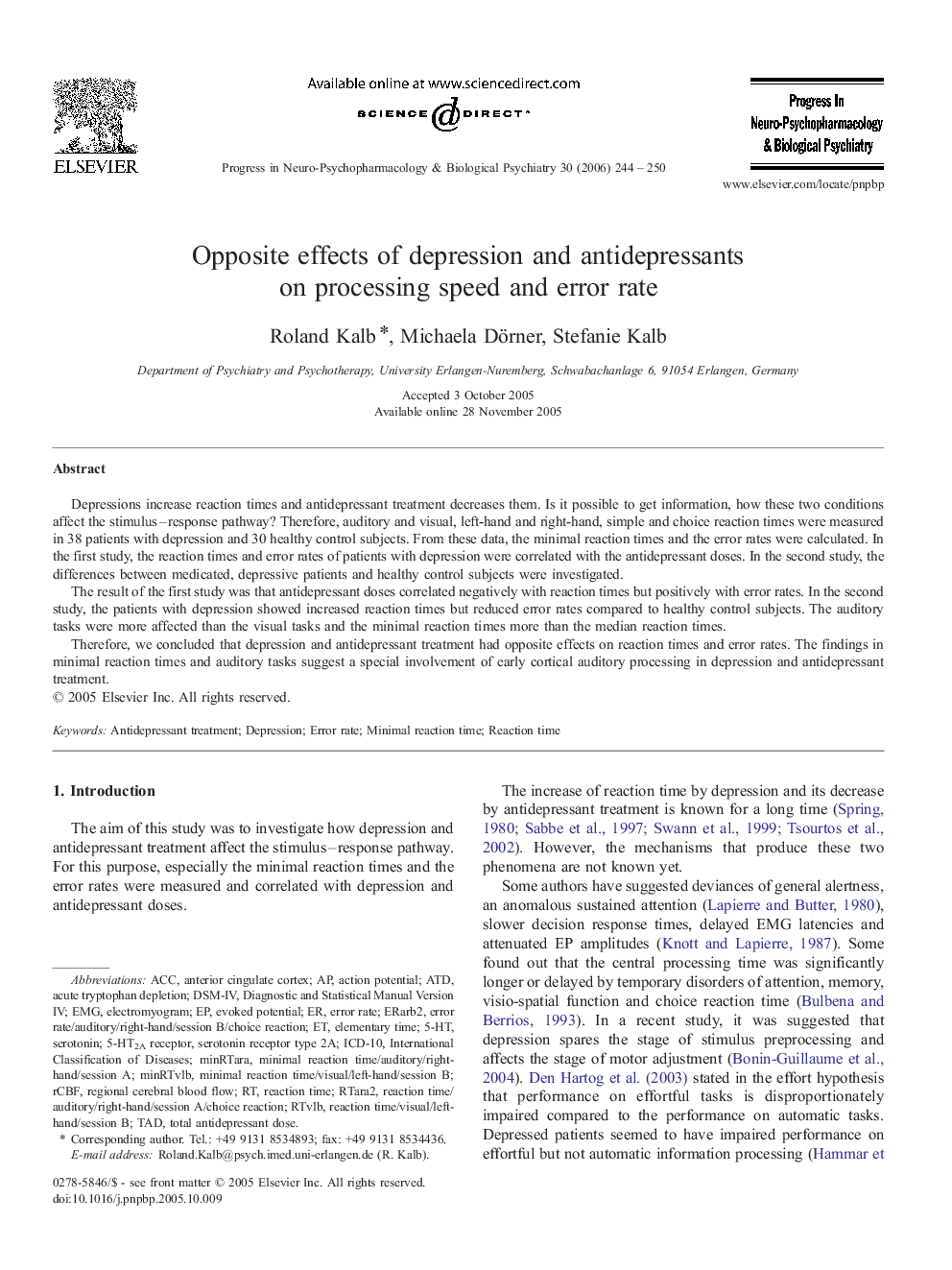| Article ID | Journal | Published Year | Pages | File Type |
|---|---|---|---|---|
| 2566239 | Progress in Neuro-Psychopharmacology and Biological Psychiatry | 2006 | 7 Pages |
Depressions increase reaction times and antidepressant treatment decreases them. Is it possible to get information, how these two conditions affect the stimulus–response pathway? Therefore, auditory and visual, left-hand and right-hand, simple and choice reaction times were measured in 38 patients with depression and 30 healthy control subjects. From these data, the minimal reaction times and the error rates were calculated. In the first study, the reaction times and error rates of patients with depression were correlated with the antidepressant doses. In the second study, the differences between medicated, depressive patients and healthy control subjects were investigated.The result of the first study was that antidepressant doses correlated negatively with reaction times but positively with error rates. In the second study, the patients with depression showed increased reaction times but reduced error rates compared to healthy control subjects. The auditory tasks were more affected than the visual tasks and the minimal reaction times more than the median reaction times.Therefore, we concluded that depression and antidepressant treatment had opposite effects on reaction times and error rates. The findings in minimal reaction times and auditory tasks suggest a special involvement of early cortical auditory processing in depression and antidepressant treatment.
